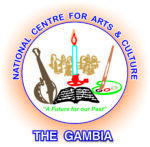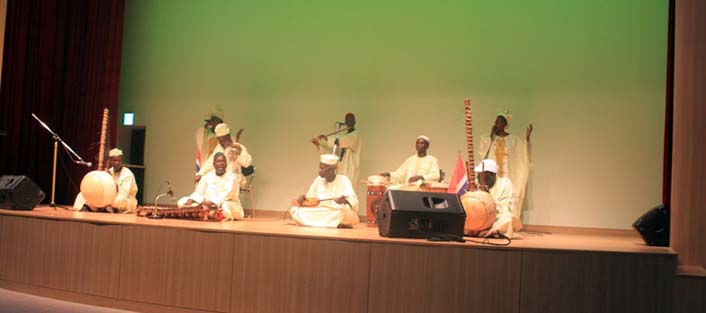Project Description
Gambian music started flourishing from the early 1960s after independence with the rise of the maestro bands of the Super Eagles, Guelewar and later Ifang Bondi until the 80s. From the 1980s till 2000 the music scene suffered because of the departure of the earlier generation of musicians to seek greener pastures abroad and the rise of the Senegalese Mbalax music. Congolese and later Nigerian music also gained momentum with the rise of FM radio broadcasts. However, since the mid-2000, there has been a noticeable revival of Gambian music through rap and Afro- Manding. The renaissance of the traditional Manding kora music has taken a new dimension with its introduction of live bands instead of the single kora player as a griot.
The current music scene is characterized by 3 classes comprising the Traditional music, Contemporary rappers and live bands playing different genres of music. The Traditional musicians category consist of the local griots, traditional communicators, local ensembles, etc. whilst the contemporary genres consist of the rappers of Mbalax / Afro- Manding, Hip- Hop/ RnB, and Reggae / Dancehall. Of recent, most of these groups have transformed into the live bands category. These evolutions are mainly propelled by nationalist demands to patronize our own music and the economic sense of reducing the influx of foreign artistes’ performances in the Gambia.
Jaliba Kuyateh spear headed the genre of turning the Kora into a live band. This evolution prompted the movement of so many contemporary rappers from play- back musicians to live instrument players. They eventually form bands or work with a commissioned backing-band such as Humanity Starz and Holy Family Bands. Today, the likes of Jali Madi Kanuteh, Mandingmorry and Bai Babu are signed by budding record labels such as Joluv Arts, Musico, etc… who also take up the task of marketing their artists abroad. Gee, Jalex, Benjamin, Killa Ace, Badibunka, ST, TSmallz, Balla Ranks etc… are currently making waves and are storming the home stage with increasingly larger crowds. There are other Gambian musicians abroad who are also doing well and come home once a while for concerts with their band members. Prominent amongst them are Sing-a–teh (Freaky Joe), Rebellion-The Recaller, Mohawk, Egalitarian and Sona Jobarteh.
Music Industry:
The Gambian music industry has under gone a significant strive since 2012 and 2013 with 14 and 12 respective new album launchings and numerous crowd pulling performances from 11 promising artists on live instrument bands. This is further boosted with numerous international performances in the UK, USA, Europe and Venezuela. Home spectacles also have gone up with the Gambian music showbiz hosted periodically at Alliance, Joko Brikama, Jama Hall and now the Open Mic Festival at the Independence Stadium, which is a privately supported musical bonanza and showcases our young talents in December for the 7th year consecutively; during this event new talents are discovered and ready to be nurtured. Therefore, the music industry is shaping up with talented crowd pulling singers, technical composers /arrangers / publishers, producers, promoters, live band instrumentalists and record labels, which are some of the structures needed to set up an industry.
The Gambian music scene fanfares more locally and its market potential internationally is quite huge amongst the Gambians in the diaspora and European music festivals; meaning Gambian musicians are mostly either invited by Gambian resident associations abroad on certain events or by European music festivals occasionally. Instead most of the musicians play at nightclubs, restaurants or bars and rarely on their own concerts excepting Jaliba Kuyateh who manages to perform in large auditoriums. Albeit, The distribution of their music products especially CDs and music videos are impeded by piracy amongst the Gambian community, a pirate will buy only one product and duplicate into several volumes for sale to the Gambians abroad in the absence of bilateral copyright protection between the Gambia and that country.
For over a century, the Gambia did not have a relevant and responsive copyright law to protect the creativity of its citizens. This has contributed to blunt the creative edge of artists in the country. The promulgation of the Gambia Copyright Act 2004 has therefore filled in major lacunae in our cultural milieu. The Gambia Copyright Act, 2004 assures full moral and economic rights to works which fall ‘under literary, artistic, musical, sound recordings, audio-visual work; choreographic work, derivative and programme carrying signal. The Act also protects folklore against reproduction or public performance for commercial purposes. It gives economic rights to authors and creators and protects translated works. The Act therefore has gone a long way in the promotion of intellectual, moral and economic rights of Gambian creators.
The Copyright Act also provides for the setting up of a Collecting Society of the Gambia (CSG) charged with the collection and distribution of royalties and also safeguards their interests abroad.
The department meets its mandate through working with the Gambia Music Union (MUSIGAM)
MUSIGAM Constitution
GAMBIA MUSIC UNION (MUSICIANS):
The Gambia Music Union’s mission is;
To develop a cultural music industry and creative cadres centered on the understanding of and the appreciation of Gambian Music and the music of all Gambian ethnic groups.
Their sole aim is:
- To co-ordinate music events and festivals in collaboration with National Centre for Arts and Culture.
- To promote the appreciation of Gambian music and culture nationally and internationally.
- To create a better understanding of our multi ethnic Gambian traditional music
- To promote and create National and International development and education projects, for association members.
- To promote education on music industry and practice.
- To create branches of the union in community centres throughout Gambia.
- To eradicate music piracy in Gambia in the interest of all musicians.
- To foster and support close relationships with International Musicians Association, and participate in Pan African Music initiatives.
- To protect the interests of musicians employed within Gambia.
- To collaborate with international organisations in the promotion of Gambian music, musicians and cultural groups.
- Protect members against misuse of their works by broadcasting, performance or illegal recording.
- Collaborate in the formation of Copyright and Royalty Collection Agency and devise protective measure to ensure against piracy.
The other stake holder in the music industry that the department works with is the Gambia Association of Music Producers and Promoters (GAMMP).
GAMMP Constitution

